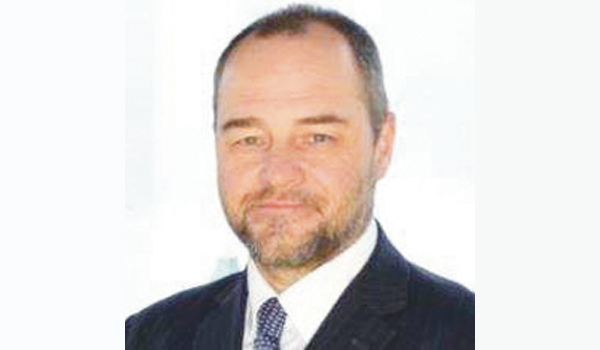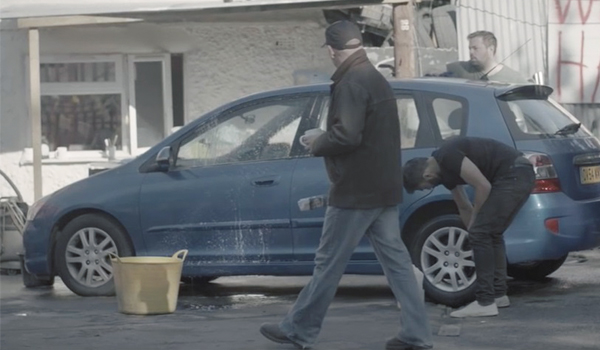Virtual innovation
Police Professional is proud to announce the latest winner of its Innovation in Policing Award – Dr Martin Wright, who is a Visiting Fellow at Canterbury Christ Church University and the University of South Wales, managing editor of the Oxford Journal of Policing and a police support volunteer with Dyfed-Powys Police.
Dr Martin Wright’s winning entry was the creation of a new ‘virtual volunteers’ scheme, which enables a straightforward way for everyone and anyone to get involved in helping the police develop by volunteering their insights and ideas.
The smart thing about Dr Wright’s innovation is that it cuts through the bureaucratic obstacles of vetting and access, allowing the wider engagement of many people who want to help policing but cannot volunteer in what have been the traditional ways of the past.
Virtual volunteers proved their worth by working with the South Wales Regional Organised Crime Unit (Tarian), which resulted in important breakthroughs in how to tackle organised and romance fraud and money laundering.
The potential since then has snowballed with multiple policing agencies recognising the worth of virtual volunteers around the globe. Today, Police Professional is proud to announce that virtual volunteers is our 2023 national Innovation in Policing competition winner.
The story of a creator
Dr Wright’s idea for virtual volunteers is a great one, but is one idea among many he has had. This then is the story of a serial creator who has offered several ideas for policing illustrating the art of the possible. His story is inspirational and reinforces the potential of speaking up and helping police to be the best it can be.
Dr Wright joined West Midlands Police in 1979, was initially stationed at Smethwick and studied for a Bachelor of Laws degree at the then Wolverhampton Polytechnic.
As a police sergeant, innovation was important to Dr Wright in helping solve the operational problems he faced at work. Such as the Radio Links community safety initiative: it was all about showing some initiative, and some determination to land the idea.
Retail radio links
As the then Wolverhampton town centre squad sergeant, Martin was on duty when a 999 call came in about a shoplifter fighting with a store detective.
The shoplifter fled the store and went into an adjoining shopping centre where he was again challenged by the store detective and there was another violent confrontation. The shopping centre security team made another 999 call in the meantime to report a fight. Again, the shoplifter made off and tried to get onto a bus. This time he was once more confronted by the store detective, but the bus driver activated a personal attack alarm.
Dr Wright recognised the lack of communication here meant that the police were attending three separate locations all for the one incident, and thought if the police have radios why cannot the retail staff and security? Dr Wright promoted the idea and the shopping centre manager agreed to support a pilot project with a local radio dealer agreeing to lend some radios for a two-week trial. The rest was history with the Home Office Safer Cities programme supporting the retail radio links.
Retail radio links is a network of radio users located within a town, city centre or retail park comprising shop staff, retail security, CCTV control rooms, etc. and the local police, to help address the problem of violence against shop staff: an issue that has recently made the headlines again unfortunately. There were wider benefits though, including prevention, intelligence collation and even helping with missing people. The scheme has by now been adopted throughout the UK and overseas and operates throughout the day and night-time economies.
From policing to academia
A Home Office Police Research Award and Bramshill Fellowship to undertake a Master of Science degree at the then Scarman Centre, University of Leicester, followed.
Dr Wright was then the only serving police officer to ever be granted a Doctoral Studentship by the Association of British Insurers, completing his doctorate at the Scarman Centre. He went back to what was now the University of Wolverhampton to complete a post-graduate certificate in higher education, and then after 30 years’ service, went to work at the University of Wolverhampton, working with a famous academic known as ‘Tank’ Waddington (P.A.J. Waddington).
Police Professional asked our winner about his outlook on innovating in policing.
Dr Wright: “Might I begin by just thanking everyone at Police Professional – it was a great honour to win it. I’ve been innovating for some time. I look back at the Radio Link innovation and some 30 years later it gives reassurance daily to thousands of its members. Each and every day it detects and deters numerous offences and offenders and works to safeguard customers, visitors and staff within our towns and cities. To any police officer reading this interview and who is interested and willing to make a difference for their local community I would suggest they drop me a line to see how Radio Link can help in their local area.
“Working as a police support volunteer in Dyfed-Powys Police I found that during the Covid-19 pandemic my role leading the Employer Supporting Policing programme had understandably been suspended. It was during this time that I began to reflect upon the dilemma that sits at the heart of policing volunteering – volunteers are valued but there are many bureaucratic obstacles such as vetting and access all of which get in the way of communities and individuals helping the police.
“As I had a foot within both the academy and policing, I began to seek to find a method by which students could volunteer for the police. I worked with colleagues to create gaming ‘programmes’ within the University of South Wales career and employment intranet site to answer policing programmes. Colleagues within Tarian asked the students some ‘big’ questions, for example how to create an effective prevent message to inform and dissuade students from becoming money mules, and this is how virtual volunteers took off.”
PP: where next for your innovations?
Dr Wright: “If I look forward to where virtual volunteers will be in say 18 months’ time, then I confidently predict that it will become, alongside the Special Constabulary and police support volunteers, the third largest established form of police volunteering. As to the future, the police routinely use their external website to ask the public for their support, for example in finding suspects, vulnerable individuals, witnesses to incidents, etc. It is entirely conceivable therefore that a virtual volunteers programme could be offered within individual police force websites.
“The benefits from virtual volunteering are it offers people on the outside of policing the opportunity to share their immense knowledge and experience to answer policing problems: to get involved and make a difference. We can imagine individual police forces each having a public facing virtual volunteers site and virtual volunteers working on the same or overlapping problems to see how their suggested answers could be applied in the best ways in different geographical areas. It would be interesting to see, for example, how Devon and Cornwall Police and Police Scotland could pool virtual volunteer insights at a national level. There are national problems that could be explored, as well as international, and the National Crime Agency or Interpol might adopt the approach. Next, we might better automate analysis of virtual volunteering inputs. I think the potential is exponential in that the innovation will offer policing solutions beyond those I have originally conceived. I believe a true police innovation should provide opportunities to solve problems beyond its original conception and design.”
PP: Any tips for our 2024 winner sitting out there reading this?
Dr Wright: “I’ve been innovating for many years and have had some successes, so I can say with some authority that it is worth seeing your ideas through from creation to implementation. It takes initiative and energy to see things through but it’s definitely worth it in the long run. I would say to anyone out there if you see something in policing that could be improved, do something about it; think about a solution and make it happen. Send your idea in and make policing better tomorrow than it was yesterday. I’ve done it, so can you.”
Police Professional congratulates Dr Wright on his winning submission. We look forward to seeing all those other great ideas that are out here, one of which will become our 2024 winner.
You can contact Dr Wright at martin.wright@southwales.ac.uk
See also
University launches ‘virtual volunteer’ project to address problems faced by the police
Dr John Coxhead SFHEA, FRSA is Professor of Policing at Loughborough University and twice winner of the Queen’s Award in Innovation in Police Learning and Development. He is also founder of the National Innovation in Policing Competition.






